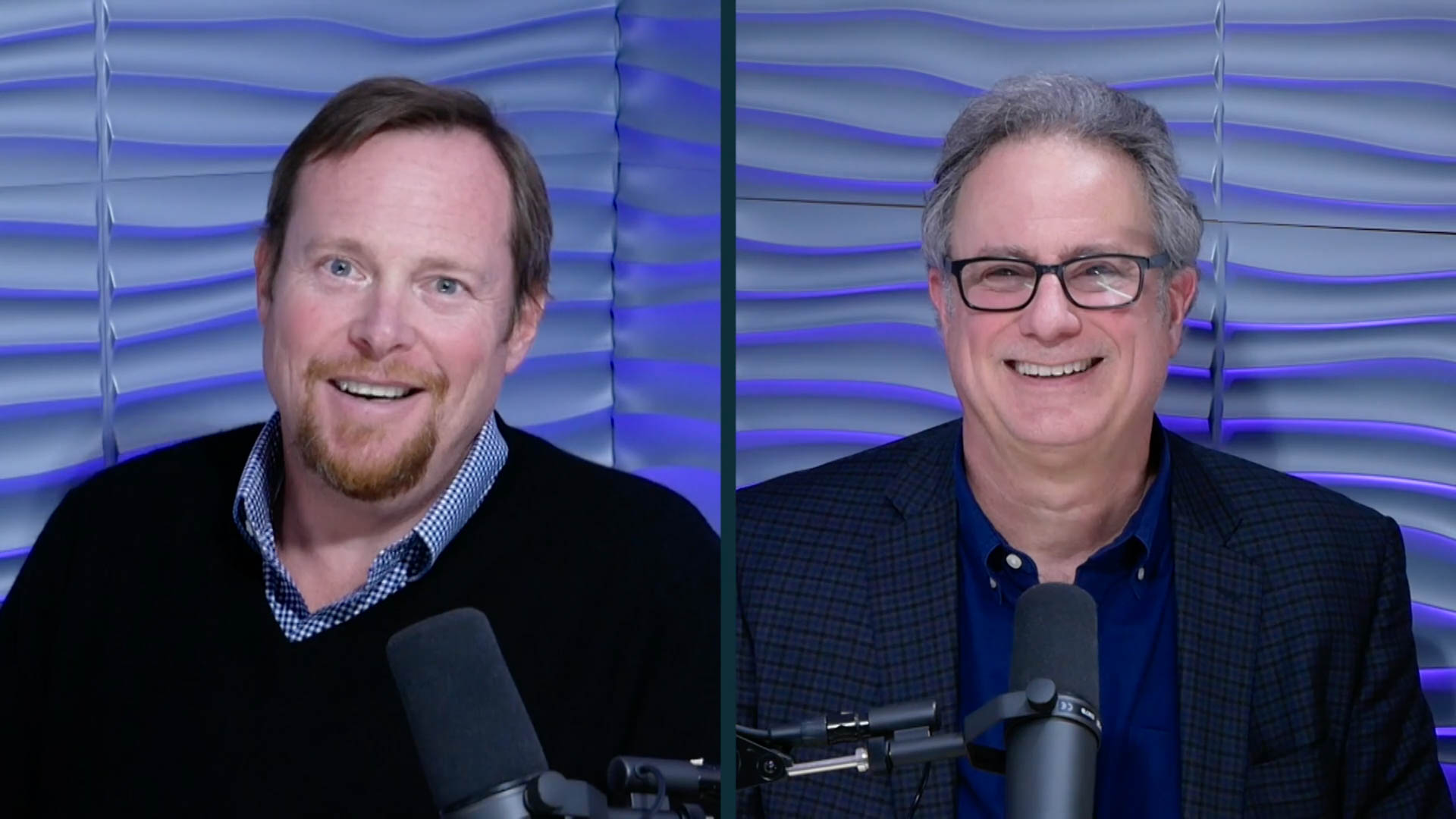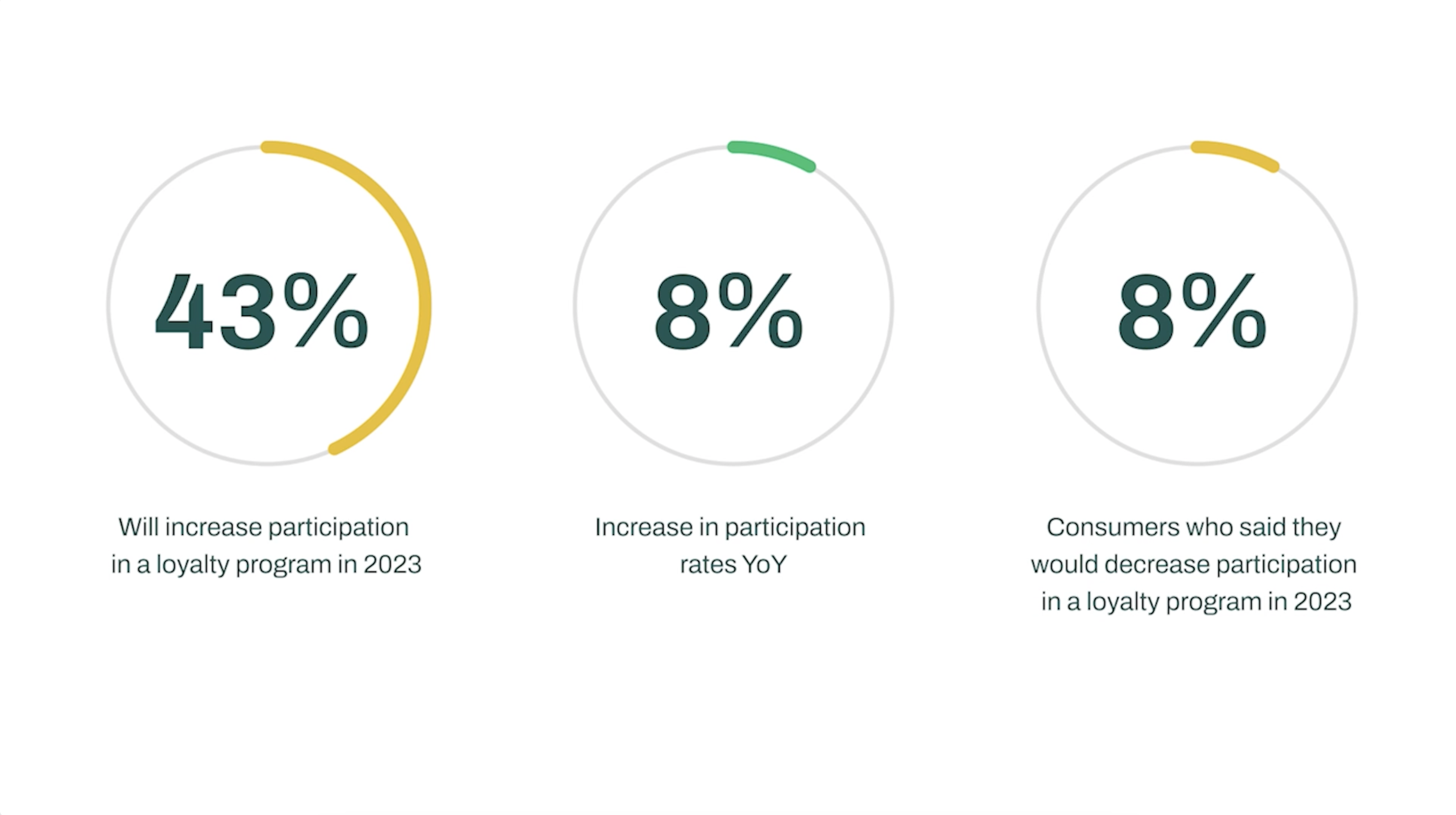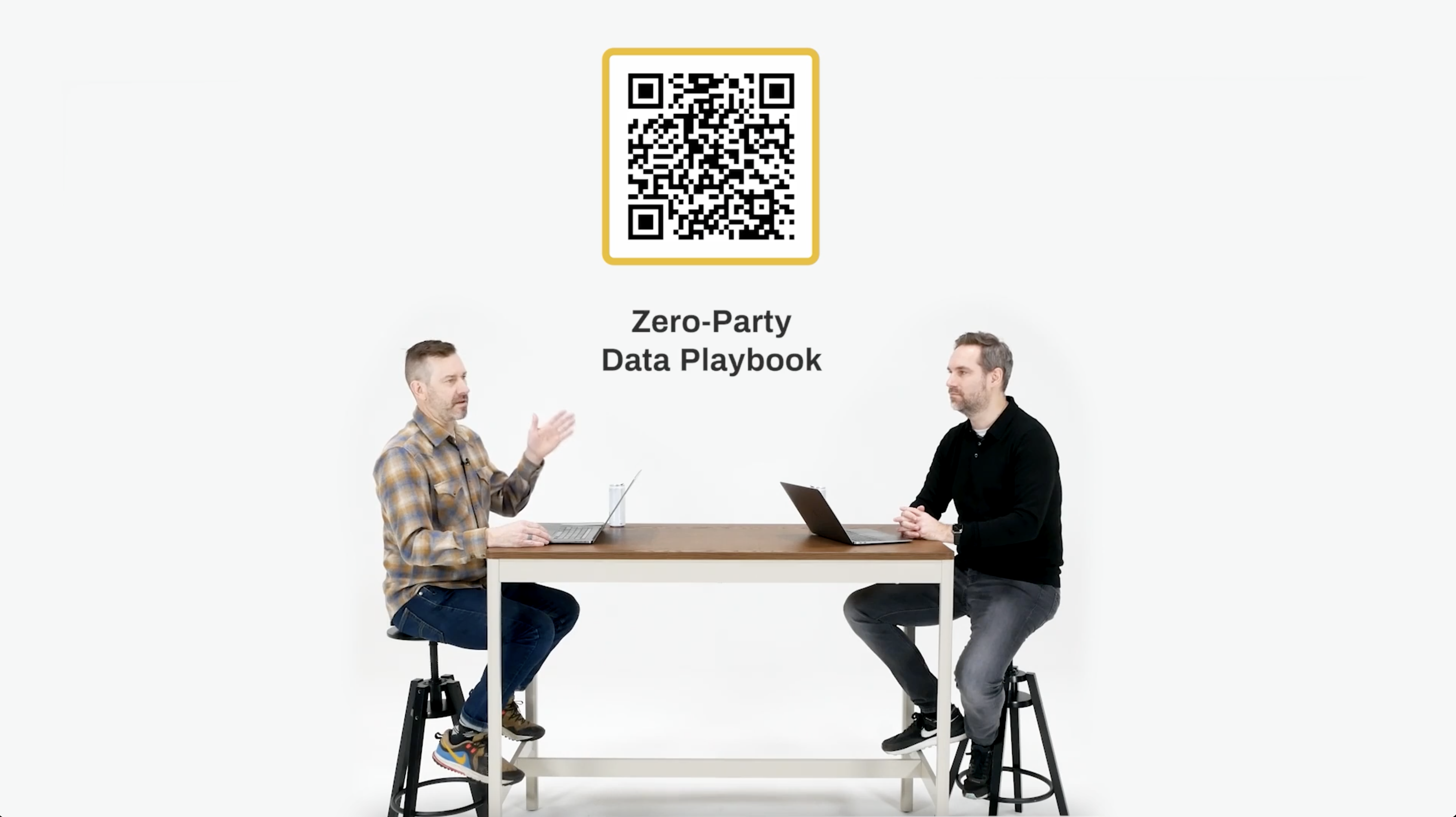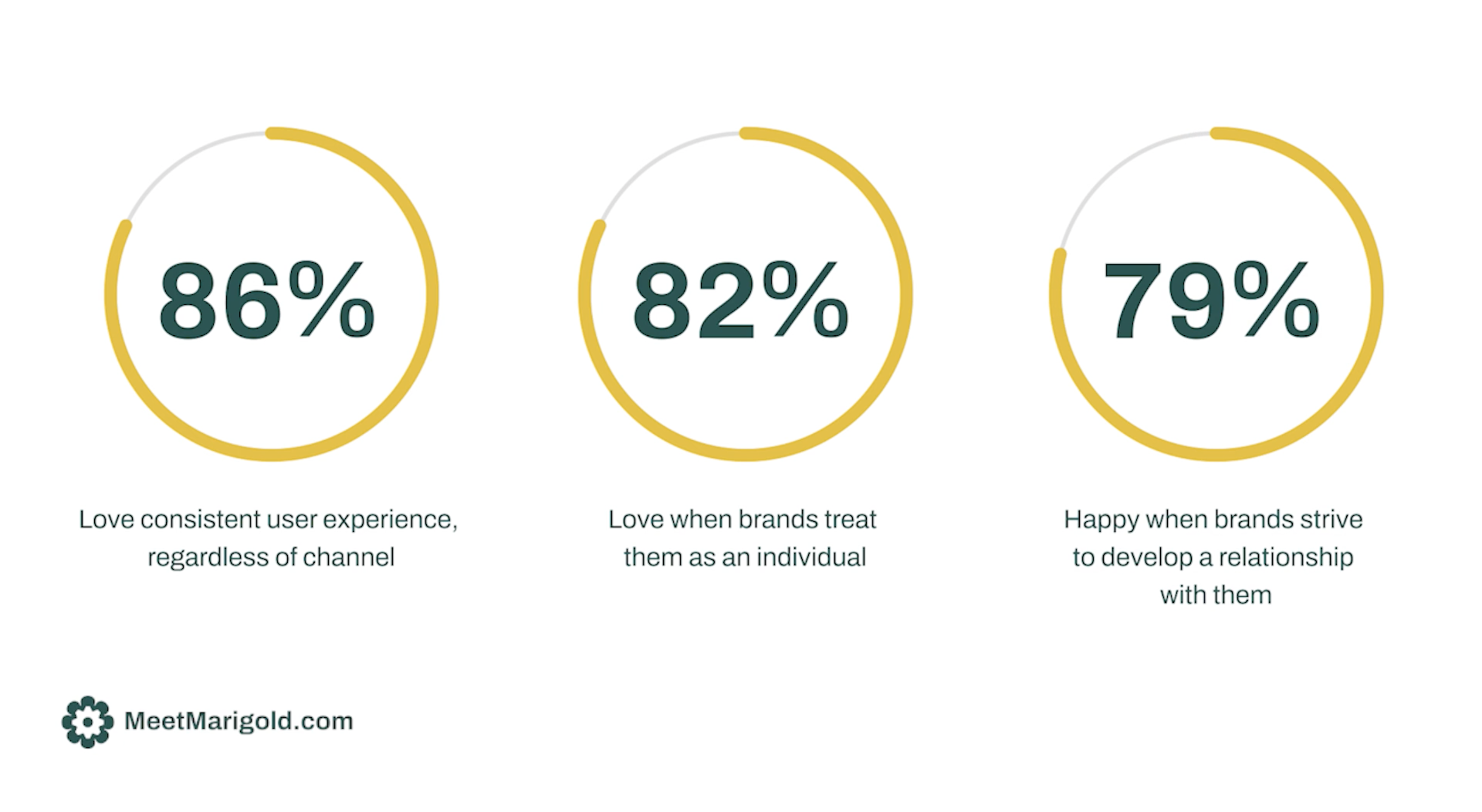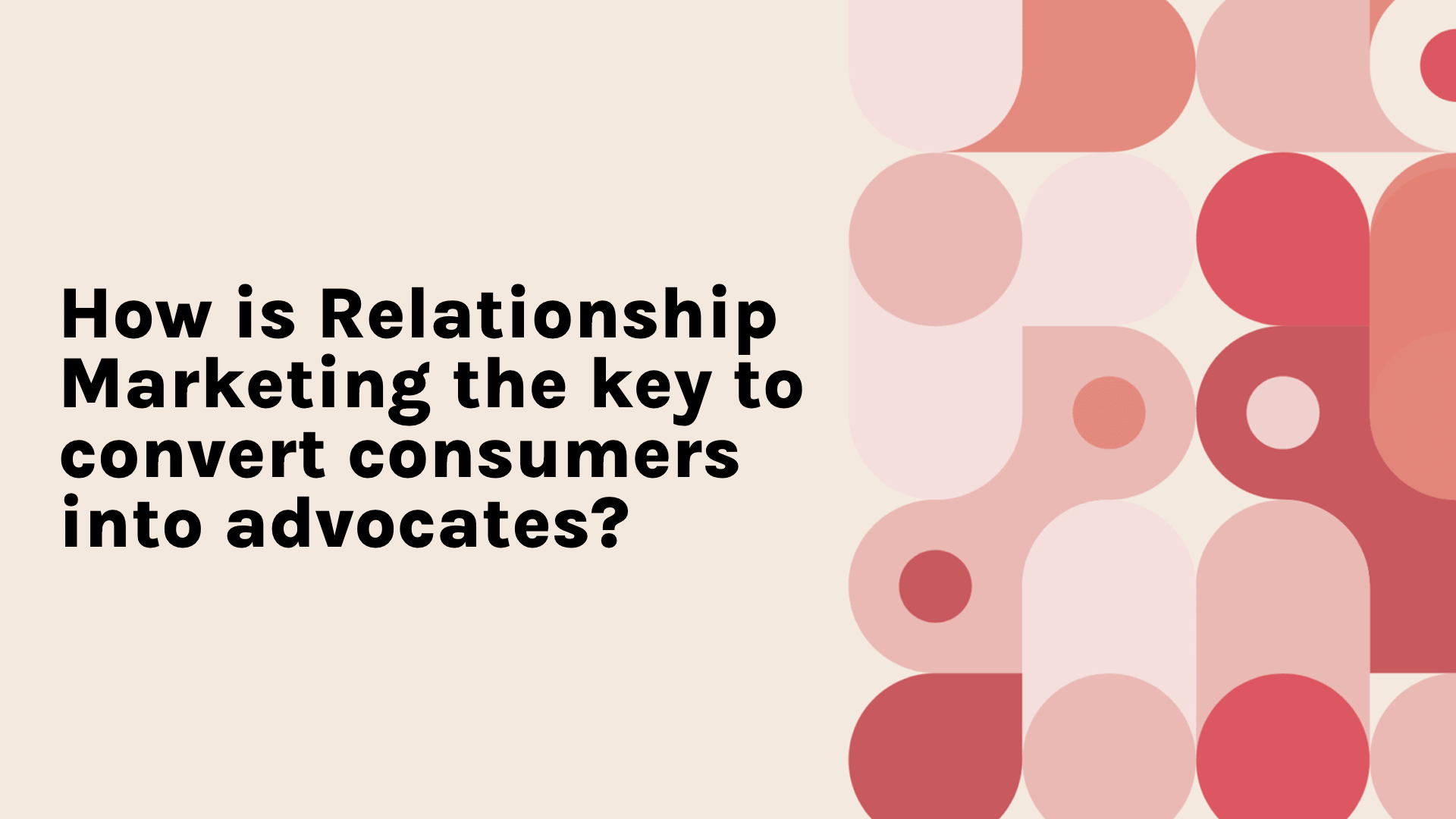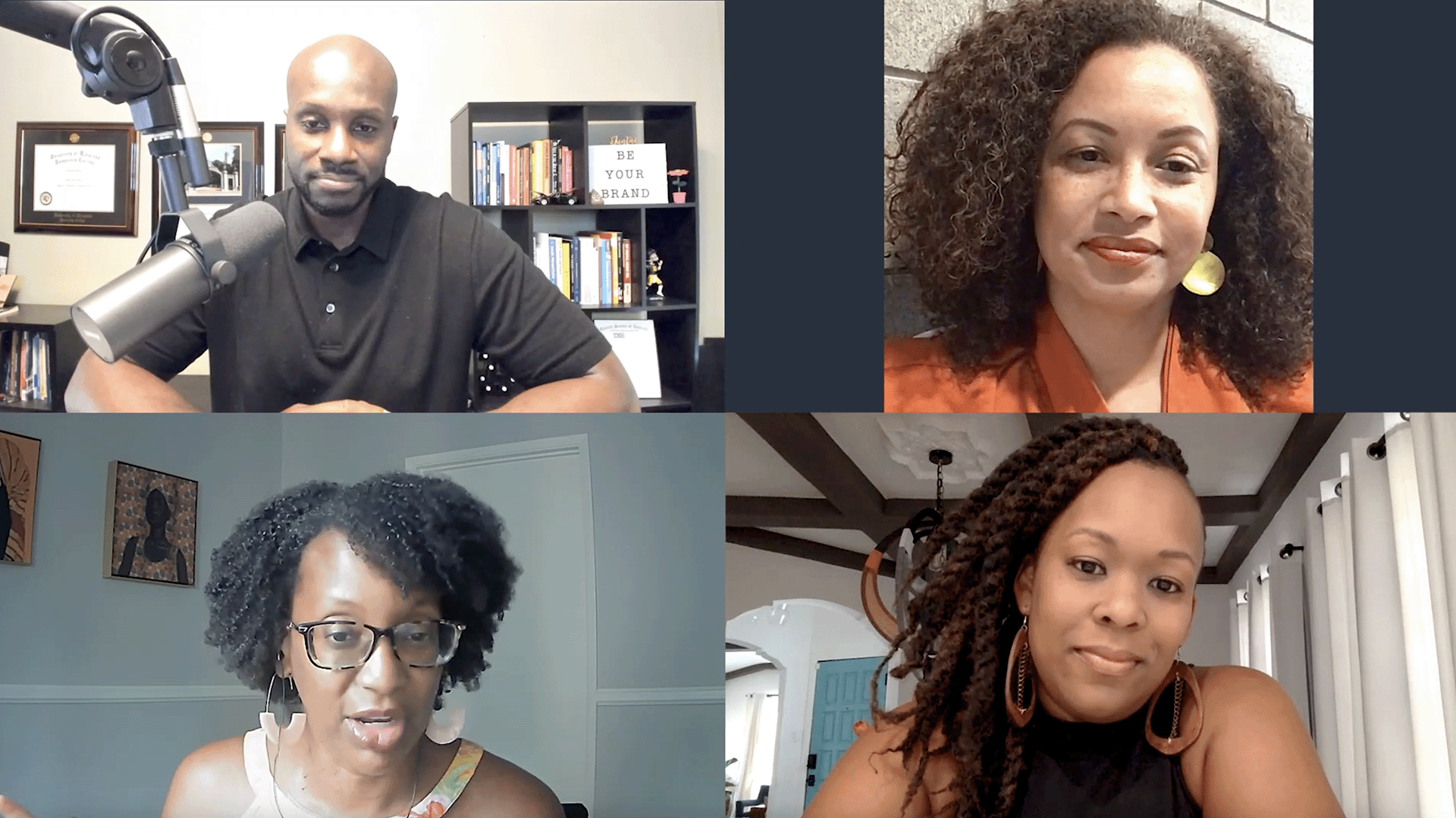How the Modern ESP Powers Human Connections
- 0.5
- 1
- 1.25
- 1.5
- 1.75
- 2
Nick: Hello and welcome. I'm delighted to be joined today by Chris Marriott, a former colleague of mine and great friend, to talk about how the modern ESP powers human connections in today's modern MarTech landscape. Chris cut his teeth on Madison Avenue before running big services teams at several recognizable names in our space, and then matriculated to the analyst and advisory side of the business, first at the Relevancy Group, and now as founder and president of Email Connect. Where he is lay are focused on helping enterprise brands make the right choice when selecting the appropriate vendors for their MarTech stack. Like me, Chris is a huge proponent of the email channel, an email geek, if you will, and he is one of the most astute and respected voices in the space. Chris, welcome, so great to have you here in the studio.
Chris Marriott: Nick, thanks. That was a very kind introduction and I'm very grateful to be here and have the opportunity to speak to the audience today. So thank you very much, I'm really looking forward to a discussion.
Nick: As am I. We're going to be digging into how the modern ESP powers human connections, and for those of you who tuned into Signals last week and watch to our product focused sessions, you probably got a good preview into the topic. And while we don't refer to ourselves as an ESP, per se, and Chris is going to poke some fun at that in a moment, I believe Cheetah really is the epitome of what Chris calls a modern ESP, nextgen ESP, and what we at Cheetah refer to as a B2C CRM. So Chris, let's kick it off here, how does the modern ESP power modern connections?
Chris Marriott: Thanks Nick, for that very kind introduction. I'm delighted to be here speaking with your audience today about the modern ESP, and again, how it powers human connections. Let's start with, though, the fact that I'm using the term ESP. There are probably a lot of folks in the audience who are sitting there thinking, that's kind of an antiquated term. ESPs are a thing of the past. We've got all of these great, new platforms today. Particularly if you're a vendor. But remember there was a time when we did call them ESPs. Now, in the past five, six years, a whole new group of names have come into play for what, essentially, we are still ESPs. And these are literally descriptions or names that I've taken off of ESP websites to describe their ESP platform. Whether it's a CRM suite, it's a cross channel campaign management, marketing cloud platform. These are all very, very different things that are used to describe what we used to call an ESP. Why is this? Well, one of the reasons is that the vendors themselves are always trying to appeal to the C- suite at their prospects. And the C- suite, in their minds, aren't interested in ESPs. And in some ways, they're right. The C- suite isn't really interested in ESPs. So what do they do? They come up with brand new, fancy names that seem to imply that what they're offering is something well above and beyond what an ESP offers. And in fact, are things that could offer business transformation. And making matters worse are the analyst community, because they no longer refer to these collectively ESPs. They slice and dice the ESP landscape into multiple different subsections. And it's not just Forrester that does that, all of the analyst groups do that. And what's really interesting, if you take the time to look at some of these waves that are produced, you'll find that the same vendor will appear in one, two, or three of them. Why is that? It's not because that vendor has such a incredibly broad range of offerings, it's because of the smaller and smaller slices being taken when these analysts are looking at the marketplace. But here's the big secret, brands continue to think of these platforms as ESPs. I work with brands all the time, and again, when we're having discussions about the RFP's we're going to run, they don't say," I want to do a RFP for a cross channel experience platform, CRM suite, marketing cloud, blah, blah, blah." They say," I need an ESP." But what they're talking about is, in their minds, modern ESPs. And, Nick, an interesting aside here, recall that our former colleague David Daniels, who was really the godfather of email analysts way back in the day at Jupiter... In fact, it's alleged that he coined the phrase ESP, email service provider. Prior to that, they were lumped as ASP's, application service providers. And again, I'm going old school on you, Nick, here, but-
Nick: But I tell you, too, I remember working with David too, figuring out what that E really meant in today's landscape. Because certainly it means much more than just email.
Chris Marriott: Right. And that's what we're going to look at. And so David, if you're out there listening, I'm still fighting to keep the ESP label. And brands are doing the same. What brands are doing, and here's the trick, brands have evolved they're definition of what it means to be an ESP. So they're very comfortable these days thinking of an ESP that does much more than just deliver promotional campaigns or, the archaic term, email blast. If you're a brand and you're thinking about an ESP and you're looking for ESPs, there's a lot of things you expect to find in that ESP. They're expected and assumed to have all of these capabilities I have listed here; promotional and broadcast email marketing. On top of that, marketing automation, triggers, journeys, automations, et cetera. There are a lot of platforms out there that will say," We're a marketing automation platform," when in fact they are sending emails. They're just sending triggered or automated emails, but they're still email platforms. And that's just one example again, of how a ESP has decided it's something else in the marketplace. They all are also expect multi- channel orchestrations. They expect SMS, MMS, push to app, mobile push, social connections. Again, all of these things are... When a brand thinks ESP, that's all of the range of capabilities they're expecting to find in that ESP. Pushing that definition, now, even further, particularly in the last few years, is the emergence of new platforms, AKA the nextgen platforms. So what qualifies? That term's thrown around a lot, nextgen platforms, and certainly a lot of platforms would love to have that label, nextgen platform. The way I look at nextgen platforms, and again, this is how I look at them. Somebody else could give you a very different definition, but the way I look at nextgen platforms is first, the architecture redefines how we think of a traditional email platform. Some of them have hybrid solutions that allow clients to keep data behind their firewall, a hybrid on- premise/ off premise, so that the data is under their control and they connect to a cloud- based delivery. So there's no syncing or moving of data. That certainly is redefining, on one level, the traditional email platform architecture. There's those that have flexible, real time platforms that can activate unlimited amounts of customer data, up to the second, and connect with complex business data. Regardless of structure, schema, and rather... And this is, again, something that's only emerged in these nextgens, rather than owning their own MTA, a lot of these nextgen platforms sit on, again, another David Daniels expression, MTAs in the cloud. Again, where the ESP itself does everything up to the deployment of the email, that's done out of an MTA in the cloud, and if you're wondering who falls into MTAs in the cloud, those are your send grids, those are your spark posts, those are your mail guns, cetera. And then there's those that are built around a central AI core. And again, an AI core that actually works, that's not just a label slapped onto the platform where you get predictive capabilities that determine things like which channels are best for win backs, or for welcome series, or whether you put it on the website or whether you put it on... Where they actually have the capability of putting personalized messaging in email, in SMS, on the platform, as well as leveraging real time stream data, to deliver these product recommendations. So these are some of the things that we've seen emerge in nextgen platforms. And again, I'm not saying that these don't exist in the older platforms, I'm just saying they've become much more prominent as these nextgen platforms are getting much more... they're getting looked at more often in RFPs and they're getting talked about more. There's one other thing in my mind that that qualifies and ESP is nextgen. The company invests in email rather than around it. These ESPs tend to embrace the ESP label. Much more, again, than some of the older platforms. And they tend to limit their investment in actual email features, things that appeal to the email practitioner, things that'll make the email practitioners life better, make their job faster, make things easier to understand, and over all, make them better at their job. Another thing the nextgen companies have in common is they tend to put a significant amount of top line revenue back into their platforms in the form of R& D. So again, there's a very, very, very big focus on email capabilities in nextgen platforms. So, we've talked about modern ESP platforms and we've said nextgens are a subset of that. So they fall under that modern ESP platform. So what is important to brands and people at the brands when they're looking at, and when they're considering, modern E ESP platforms? One of the most important things to recognize, and if you're a brand, and if you've done an RFP, you're going to be shaking your head probably as I go through this, because you've just seen it in action. Because in reality, depending on where you sit at a brand, you have very, very different needs and requirements from your modern ESP. For example, your VP, director level, they tend to have several priorities when engaging or selecting an email partner. Stability, reliability to the platform, huge for them. Availability of value- added services, like analytics and creatives, they're taking a broad view. Where do I need to hire? Where can I outsource with my ESP? They want to leverage various sources of data in real time. Again, there's so much data available, but they want to make sure that the data they use is available before it gets stale. And are also looking for reporting and analytics capabilities. Now, I'm not implying that the practitioner doesn't care about these things as well, but the practitioner's top list looks still a little different than this. What's important to IT? IT, in my experience, focus on the ability to the email vendor, the partner, to play the data where it is. As opposed to oftentimes the marketing team, they don't care where the data sits, as long as the data is accessible and that it is real time, and available for their email campaigns. So IT play the data where it lies, and part of that is because as they also care very much about data security, and if you're playing the data where it lies, you're behind the firewall. So again, this often takes the shape of an on- premise solution or they gravitate towards solutions that offer easy connections and extensive APIs, like the MTAs in the cloud. In fact, a lot of the nextgen platforms emerged because of IT departments insistence that they not give up relationships with an MTA in the cloud. And so, it made sense to potentially look for an ESP that could sit on top of that cloud and make the marketers happy. Finally, campaign production. And this is probably the most important group to consider. And vendors, if you're listening, and Cheetah, you've heard me tell you this, and I know you're listening, but these are the people who ultimately make the decision. Again, don't talk to the C- suite because they're not involved. I can tell you, in any number of RFPs we've run with companies that are the biggest in their industry, Fortune 50, the involvement of the C- suite in those RFPs is practically nonexistent. It's the folks that are in campaign production that are really driving the decision. What do they care about? They care about automations, they care about wizzywig interfaces, and intuitive features and functionalities. Like I said, things that make it easier for them to do their job. They like platforms and features that make that job easier and they like the ability... This is really critical. They like the ability to do things without needing the intervention of their ESP team at the vendor, or heavens forbid, their own IT folks. They want to be able to do things themselves. And a lot of platforms are making things that, historically required intervention, much more easier. And the modern ESPs are headed in that direction again. Where campaign production can do things without intervention. So what's next? Where are the modern ESPs going next? Where do I see them evolving in the next several years? There's two main areas where I see, coming with the modern ESPs. First trend is what I call CDP inside. And those of you who have maybe seen me speak in the past, know that I've spoken several of times about the collision between CDPs and ESPs. And the collision meaning that there's tremendous overlap between the two platforms. And oftentimes that goes unnoticed by brands themselves, part of that's because there's different teams. You have one team that may be examining the ESP relationship and vendor. There is another that might be out looking for CDPs. And the problem is that, what goes unrecognized, is how many things are overlapped between those two platforms. The reality is, and I often get asked again, which do I buy first? The CDP or the ESP? My quick answer to that is, always ESP first, because if you have an ESP and you determine all of your real requirements, you might or might not decide you need a CDP. If you have a CDP, you are always going to need to add an ESP because CDPs don't send email. But the modern ESP, the modern ESP is going a step further in doing what I call CDP inside. And by that, the capabilities and functionalities of CDP platforms either sit side by side with their ESP or CRM platform, or actually are embedded in itself. And I think this is one of the trends we're going to see longer term, that the ESP, just like they absorbed marketing automation from the platforms that emerged that just focused on that. Just like they absorbed journey building and built that as part of their platforms. Just as they absorbed lots of things, adaptive content, many other things, they are going to... My prediction is, long term of the truly modern ESPs, are going to be having CDPs inside. And in my mind, that makes a ton of sense. So I think that's a very good development. The second big development that I see coming, and I've written about this recently, is the emergence of a tighter combination between loyalty and email. Now, those of you out there saying," Well, we've got a loyalty program and we send a lot of email on behalf of our loyalty program." But that's just it. Traditionally, the email platform and the email team has been merely somebody who disseminates loyalty program information. Here's your latest points totals, here's an upgrade, here's this or that. But with issues around third party data, and the issues around cookies going away, and the fact that it's going to be less and less third party data, and people are getting more and more uncomfortable using third party data. If you're an email marketer, you need to have a plan. And that plan needs to be, how do I get as much zero party data and third party data into my platform as possible? And you know the way you do that? That's by joining forces with your loyalty program and not just asking the loyalty program," What can I do for you?" But," What can you do for me?" And there's lots of things loyalty programs can do. Lots of things they can ask. Lots of information they've gotten in their databases already, that they can share with you, that is valuable zero party and valuable first party data. And the more of that you have, the more competitive you're going to be long term. And I already see it in several ESPs that are either acquiring or building, or have looked ahead and said, loyalty is going to be a critical component of the successful email program in the future, because it delivers zero party data. So again, that is the next trend that I see happening. In the modern ESPs, is every ESP going to tie loyalty programs tightly and literally offer loyalty programs as part of their offering? No, they're not all going to do that. But their modern ESP, and if we go back to those human connections that we're talking about, the best human connections occur with zero party and first party data. So that's the large trend, or the second trend that I see, where the modern ESPs are going. So with that, Nick, I've sort of said everything I've got to say.
Nick: I love it.
Chris Marriott: Other than any questions you have for me?
Nick: Yeah, for sure, man. Let's dig in deeper on a few topics here. First of all, obviously these last two trends, CDP inside and loyalty, are ones where you're identifying, this as a trend. Now, I think that the product teams at Cheetah Digital have been working on this for three years and now have both of these natively integrated into the platform. Your point there, loyalty data often sits siloed in loyalty programs and is leveraged in those loyalty programs. But the real power is breaking that out of the silo and syndicating that through email programs. Cross channel marketing programs too. And maybe, let's also go to back to the email, back to the email and the ESP and what is the E now? What is the E? Is it every channels or is it just amorphous?
Chris Marriott: Well, we've talked David Daniels to death, and I know that one of the last things he did with you in Relevancy Group, where you guys came out to the market and said," The E stands for every channel service provider." I think that's trying to redefine what the X in Xerox stands for, if it ever stood for anything. ESP is, it doesn't really matter what the letters stand for, it matters what the combination of letters represent in the listener's brain. And again, I think, yes, we could say it's every channel, no one's ever going use that. They'll shorten it back to ESP. But I think it's valid in that the modern ESP is, in fact, an every channel service provider. I'm old school, I'll always call them email service providers.
Nick: No, I hear you. I hear you. And we certainly like how you're defining it, the moniker. Again, we got some other fancy names, too.
Chris Marriott: Yes, you do.
Nick: Specifically, you have worked with a lot of big brands and are continuing to work with big brands, selecting vendors that meet their needs best. You've obviously, there are probably several of your clients, customers, in the audience now who are currently Cheetah customers.
Chris Marriott: That's true.
Nick: For sure. Are there key components that you're looking for right now? Are there hot areas where you're over indexing in your vendor evaluations? Besides these two key areas?
Chris Marriott: Well, no. And Nick, it goes back to... It gives the opportunity to talk a little bit more about how important knowing your audience, if you're a modern ESP, is. And that audience is the campaign production people. In a typical of RFP that we create, a requirements segment RFP, where there might be 250 RF requirements. There could be 90 that are around campaign production and campaign management. And that's a clear indication of, that the majority of needs and desires are coming from the campaign production team. And what I think is so interesting, what I think is so interesting, to say it twice in a row, is that incremental change is hugely meaningful to campaign production people. They're not looking for the next big, amazing thing that a vendor's going to... That doesn't make you a modern ESP because that means you don't recognize what your audience and what they want. The C- suite might like bright and shiny, but they're not going to buy it. They may feign interest, but they're not going to buy it. So if we look at things that get brands excited, you look... And where the modern ESPs are starting to notice are where you see them first emerge in third parties. So much of the innovation in modern ESPs emerge in third parties. We've seen it in adaptive content or open time optimization. We've seen it in data visualization. We've seen it in send time optimization. For crying out loud, we've seen it in better email editing tools. And all of these things get developed on the outside because the vendors modern... the non- modern ESPs are focusing on the wrong things. The modern ESP should be either buying these companies, and several of them have been bought, or building it in the platform. Because again, campaign management tools, where you can mark up and track the progress of the campaign, these things are hugely in demand from brands and there are not enough platforms. So the modern platform is, I'm going to turn it on it's head, you think the modern platform had lots of new things. No, the modern ESP platform has lots of better things. And that's really where, if you want to be a modern ESP, or if you want to look at modern ESPs as a brand, that's what your focus should be. Not on these things way up here, but what's the nuts and bolts of the platform itself? And how is that getting better?
Nick: Yep. Yep. And how that's going to drive your business.
Chris Marriott: How it's going to drive your business, right.
Nick: Chris, we've hit on a lot of changes in the vendor landscape. Are RFPs getting harder or easier for brands nowadays?
Chris Marriott: Yeah, that's a great question, Nick. And gives me an opportunity to talk directly to the brands here in the audience today. In my mind, RFPs are getting harder. The changes in the landscape have made it much more difficult and much more laden with potholes for brands that want to do an RFP. There's a lot of ways brands can go wrong right out of the gate. And one of the things that I tell brands all the time is that there are a lot bigger differences between ESPs than most brands realize. And that's not surprising. They haven't been in the market for 5, 6, 7 years. As we said earlier, well I didn't say earlier, but I'll say now, the analysts and the... I'll talk about analysts again, analysts and sales people from the vendors tend to lump everyone together. You see people in analyst reports that I wouldn't put in the same RFP being compared. You see, again, sales people who rarely saw a requirement that their platform wasn't perfect for. So the danger for brands is not understanding what those differences are before they decide who they want to invite to their RFP. So my two biggest suggestions for brands that are considering an RFP is, number one, start with your unique requirements. Understand as deeply as possible, what are unique requirements? What are the hardest things for you to do that you wish you got better? What are the things that you've cobbled together from scratch because your current ESP couldn't do something the way you needed it to be done? Find out what those things are. And once you've got those unique requirements and unique use cases, the second thing you need to do is, either do your whole homework on the vendor landscape or bring somebody in who understands the vendor landscape. Because I like to say it like this, let's say you invite six ESPs to pitch your business. And again, there are so many dramatic differences. You can lump the vendors together in the four or five distinct groups, but there are four or five distinct groups. And let's say one of those groups, all the vendors in it are really good prospects for your business. And there's another group where they could be good, they might not be good, and there's another group where they're completely inappropriate to meeting your requirements and solving your problems. And if you don't understand those differences and you go in and you pick two from each group, you've just set your RFP up so that there's a two thirds chance you're not going to pick the right ESP. There's a one third chance you're going to pick the wrong one, there's a one third chance you're going to pick a eh, and there's only a one third chance you're going to pick the right one. So it's absolutely critical that you only look at ESPs that, if they won your business, would be a great fit. So again, if you're thinking RFP, understand your requirements and make sure you understand the vendor landscape. That way, you'll get off to a great start in your next RFP.
Nick: Great advice. Great advice. And Chris, I know your process focuses pretty heavily on use cases and defining those core use cases that you really need to execute on and then finding the partner that...
Chris Marriott: And we do it all through scorecard so that there's a paper trail. Because again, I think everything should be objective. Vendors deserve an objective selection process because it's a lot of work for vendors to pitch a brand's business. So they deserve that the process be fair and objective. And using scorecards to make your decisions throughout your selection process, ensures that it is fair, that it is objective, and that, in the end, there's the greatest likelihood that you're going to pick the right ESP. Because you know what, there isn't a best ESP. If there were a best ESP, there'd be one ESP. The fact is, there are a lot of really good ESPs, but there's always a best ESP for you. And that's what, again, your job in running any RFP is to make sure you get the best ESP for you.
Nick: At Cheetah, we obviously believe we have some of the best technology in the space. We also believe we got the best people and process in the space too. And you hit on services a little earlier. Where do services fit, in the mix here?
Chris Marriott: And Cheetah does have a long history of providing really good services. And services are an interesting element. A lot of brands go into something and think they don't need services. And they often don't until they do. I look at services oftentimes as the fire department, you don't think of the fire department until your house is burning down. And you want to be able to pick up the phone, have somebody answer it, and take care your burning house. Well, when it's 6: 00 AM on Black Friday, and God forbid, there's a glitch in the platform, you want to be able to call the fire department. And so what I've seen brands do over time is, they're always going to get services somewhere. There are those ESPs, like Cheetah, that have an agency inside. We talked about CDPs inside, Cheetah has an agency inside. And I think that is a great thing to offer your clients that, again, that they have people that understand their business. That are there, that are invested. I know your people are invested in your client's business and they're there if you need them, when you need them, and maybe you need them all the time and maybe you only need them sometime. But I've seen so many clients that go to ESPs, or brands that go to ESPs, that consider themselves technology companies that don't have of services. Which has been very good for the email agencies, and we've seen them all spring up, but if you're a brand you're going to get services from somewhere one way or another. You're going to either get it from your ESP or you're probably going to have to turn, at some point, to some sort of outsource agency. Whether it's a fullblown agency or not remains to be seen, but everybody needs backup at some point or another. And again, I would bear that in mind. And again, Cheetah has always been a proponent of having those services available to all its clients from creative analytics. And again, I think that says a lot about Cheetah Digital.
Nick: Chris, thanks again. Really great stuff. As I kicked us off with, I really do believe Cheetah is the epitome of what you're talking about here, in terms of modern ESP nextgen. Even though we're not referring to it as such. Really appreciate you making the time. Great to have you in the studio, any last words for the audience before we close it out here?
Chris Marriott: Yeah. First I want to thank Cheetah Digital for the opportunity to speak to everyone today and share my thoughts. So again, thank you Cheetah Digital. And I want to close with, I don't think there's ever been a more exciting time to be in email marketing. I've been in it a long time and the innovation that I see today, the advanced capabilities, all of you who are on the brand side, you've got a great career ahead of you in email marketing and beyond. But email will be a great foundation for whatever you do. And again, there's a lot coming down the pipe, a lot more interesting stuff, and I'll enjoy seeing how it all evolves for all of us.
Nick: Thank you, Chris.
Chris Marriott: Thanks, Nick.
DESCRIPTION
Nick Einstein will host this session presented by Chris Marriott, CEO and Founder of Email Connect, highlighting how the modern ESP powers human connections in today’s cross-channel marketing landscape. Chris has years of experience helping connect Fortune 500 brands with enterprise marketing technology solutions and will share key insights for today’s enterprise marketer. Chris will help you redefine your expectations for cross-channel messaging platforms and laser in on what capabilities are must-haves in today's landscape. This is the future of ESPs as you know them.
Today's Guests


